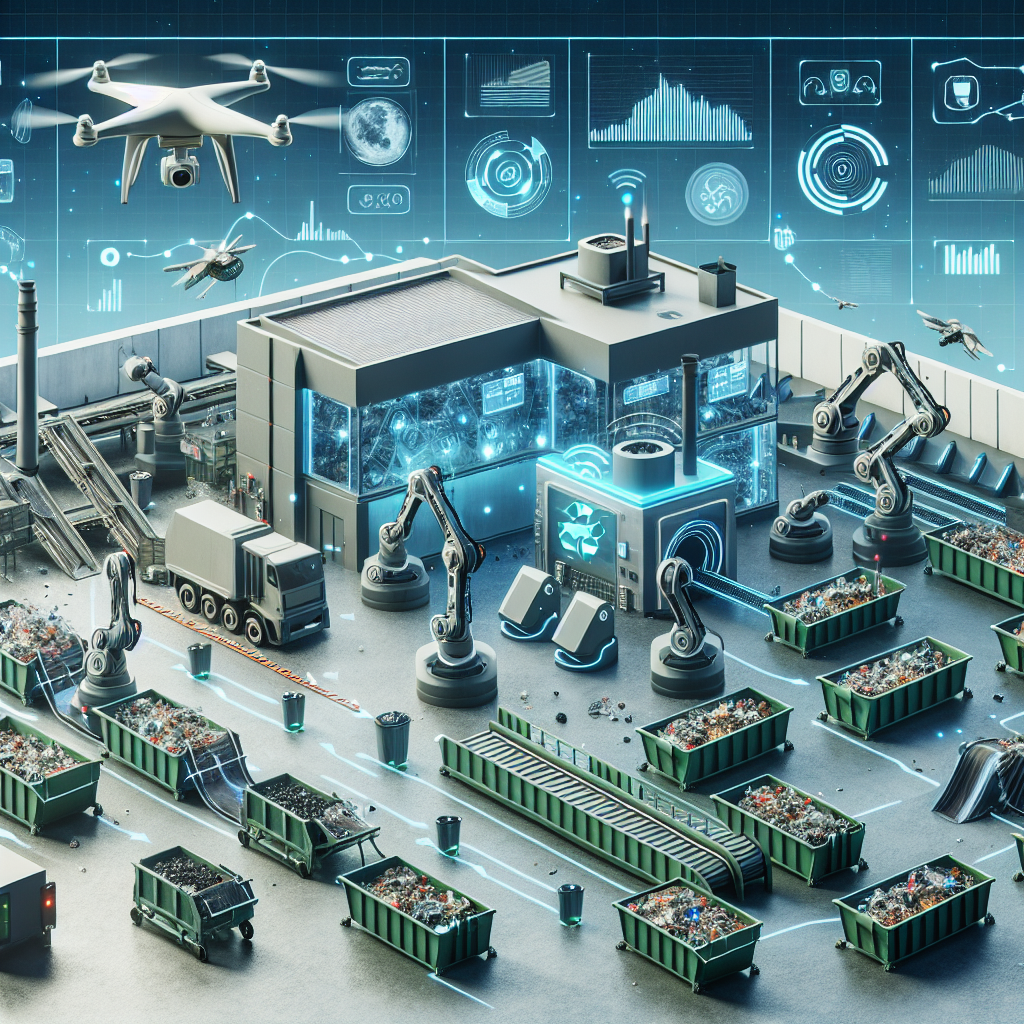Artificial Intelligence (AI) is revolutionizing the way industries operate, and waste management is no exception. With the increasing amount of waste being generated globally, the need for more efficient and sustainable waste management solutions is becoming increasingly urgent. AI applications in waste management are helping to optimize waste collection, sorting, recycling, and disposal processes, ultimately leading to a more sustainable and environmentally friendly approach to handling waste.
One of the key applications of AI in waste management is in waste sorting and recycling. Traditional waste sorting methods are often time-consuming and labor-intensive, with a high risk of contamination and errors. AI technology, such as machine learning algorithms, can be used to automate the sorting process, making it faster, more accurate, and more efficient. By using sensors and cameras to identify and sort different types of waste, AI systems can significantly improve recycling rates and reduce the amount of waste that ends up in landfills.
Another important application of AI in waste management is in waste collection and transportation. By using real-time data and predictive analytics, AI systems can optimize waste collection routes, schedules, and fleet management, reducing fuel consumption, emissions, and operational costs. This not only helps to improve the efficiency of waste collection services but also reduces the environmental impact of waste transportation.
AI technology can also be used to monitor and analyze waste generation patterns, allowing waste management companies to better understand and predict the amount and types of waste being generated in different areas. This information can be used to develop more targeted waste management strategies and initiatives, such as promoting recycling programs, reducing waste generation, and increasing waste diversion rates.
Furthermore, AI applications in waste management can help to improve the safety and efficiency of waste disposal processes. By using AI-powered robots and drones, waste management companies can automate hazardous waste disposal tasks, reducing the risk of accidents and injuries for workers. AI technology can also be used to monitor landfill sites and waste treatment facilities, ensuring compliance with environmental regulations and minimizing the impact of waste on the surrounding environment.
In addition to these applications, AI can also be used to develop innovative waste management solutions, such as smart bins and waste tracking systems. Smart bins equipped with sensors and AI technology can automatically detect when they are full and need to be emptied, optimizing waste collection schedules and reducing overflow and littering. Waste tracking systems powered by AI can provide real-time visibility into the entire waste management process, from collection to disposal, allowing companies to monitor and optimize their waste management operations more effectively.
Overall, AI applications in waste management are helping to transform the industry, making waste management processes more efficient, sustainable, and environmentally friendly. By leveraging the power of AI technology, waste management companies can improve recycling rates, reduce waste generation, and minimize the environmental impact of waste disposal, ultimately contributing to a cleaner and healthier planet.
FAQs:
Q: What are some examples of AI applications in waste management?
A: Some examples of AI applications in waste management include waste sorting and recycling, waste collection and transportation optimization, waste generation pattern analysis, hazardous waste disposal automation, smart bins, and waste tracking systems.
Q: How can AI technology improve recycling rates?
A: AI technology can improve recycling rates by automating the waste sorting process, making it faster, more accurate, and more efficient. By using sensors and cameras to identify and sort different types of waste, AI systems can increase the amount of recyclable materials that are recovered and reduce the amount of waste that ends up in landfills.
Q: How can AI optimize waste collection and transportation?
A: AI can optimize waste collection and transportation by using real-time data and predictive analytics to optimize collection routes, schedules, and fleet management. This helps to reduce fuel consumption, emissions, and operational costs, while improving the efficiency of waste collection services.
Q: How can AI technology help to monitor landfill sites and waste treatment facilities?
A: AI technology can help to monitor landfill sites and waste treatment facilities by using sensors, drones, and robots to collect and analyze data in real-time. This allows waste management companies to ensure compliance with environmental regulations, minimize the impact of waste on the environment, and improve the safety and efficiency of waste disposal processes.
Q: What are the benefits of using AI in waste management?
A: The benefits of using AI in waste management include improved recycling rates, reduced waste generation, optimized waste collection and transportation, enhanced waste disposal processes, increased efficiency and sustainability, and a reduced environmental impact of waste management operations.

